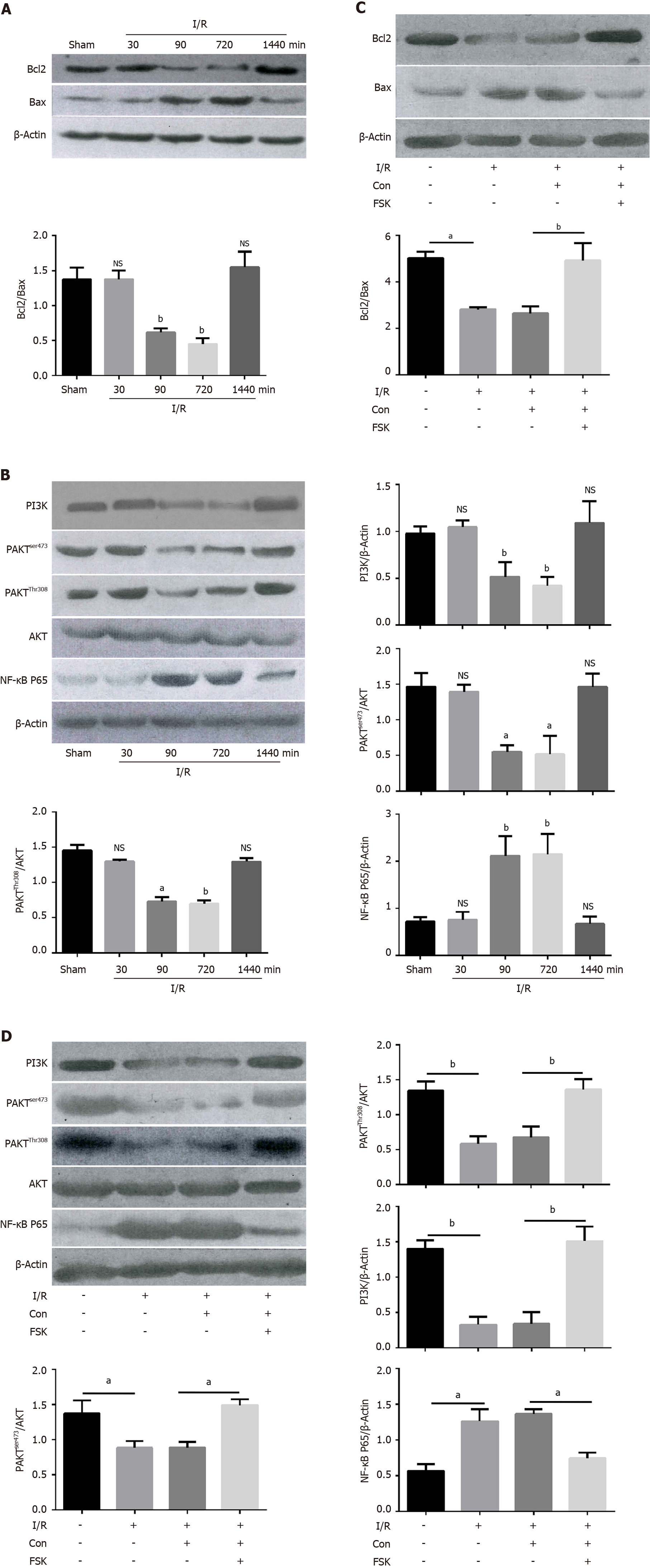Copyright
©The Author(s) 2022.
World J Gastroenterol. Mar 7, 2022; 28(9): 918-932
Published online Mar 7, 2022. doi: 10.3748/wjg.v28.i9.918
Published online Mar 7, 2022. doi: 10.3748/wjg.v28.i9.918
Figure 5 Cystic fibrosis transmembrane conductance regulator protects the intestinal cell from apoptosis induced by ischemia/ reperfusion by inhibiting PI3K/AKT/NF-κB pathway in vivo.
A: Representative Western blotting and quantification data for cell apoptotic proteins Bcl-2 and Bax at different time after the ischemia/reperfusion (I/R) treatment, bP < 0.001 vs control (n = 3); B: Representative Western blotting and quantification data for PI3K, p-AKTser473, p-AKTThr308, and NF-κB P65 at different time after I/R treatment, aP < 0.01 and bP < 0.001 vs control (n = 3); C: Representative Western blotting and quantification data for cell apoptotic proteins Bcl-2 and Bax after the FSK treatment in I/R treatment animal model, aP < 0.01 and bP < 0.001 vs control (n = 3); D: Representative Western blotting and quantification data for PI3K, p-AKTser473, p-AKTThr308, and NF-κB P65 after FSK treatment in the I/R treatment animal model. Data are presented as mean ± SD. aP < 0.01 and bP < 0.001 vs control (n = 3).
- Citation: Dong ZW, Liu H, Su FF, Fan XZ, Zhang Y, Liu P. Cystic fibrosis transmembrane conductance regulator prevents ischemia/reperfusion induced intestinal apoptosis via inhibiting PI3K/AKT/NF-κB pathway. World J Gastroenterol 2022; 28(9): 918-932
- URL: https://www.wjgnet.com/1007-9327/full/v28/i9/918.htm
- DOI: https://dx.doi.org/10.3748/wjg.v28.i9.918









